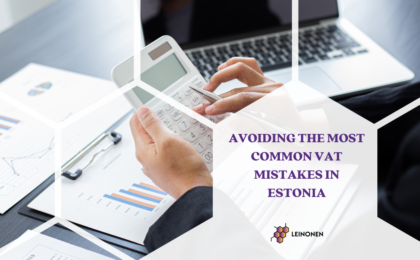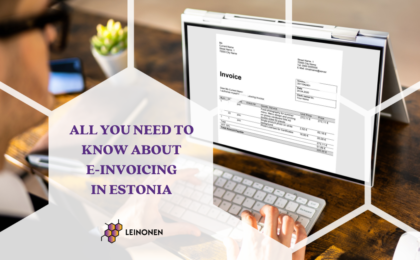Smart companies have a very diverse list of marketing measures meant for self-promotion and for ensuring the loyalty of the customer base. The recognition of such measures in the accounting and tax returns of a company is exactly as diverse.
A good example is the term ‘gift’ since as a rule we call a gift everything that we assign to our partners, customers and employees in the course of everyday business, incl. for marketing purposes. Gifts that a company makes are generally subject to income tax at the rate of 25%. However, the term ‘gift’ may cover various transaction types the taxation of which must take place according to the actual substance of the transaction. In addition, if the recipient of the benefit is an employee, this also brings along, as a rule, the obligation to calculate a fringe benefit. Some examples to illustrate the foregoing:
Product samples are generally goods not subject to value added tax or income tax. The goods must not be for sale, and must be provided with such a notation. Upon failure to comply with the conditions, if the goods are handed over free of charge, they are subject to income tax and value added tax.
Advertising gifts – generally subject both to income tax and value added tax. Under certain conditions advertising gifts may be made exempt from tax (taking into account the limit), except if the company makes a gift to its employee. In the latter case, if the gift has a consumption value, the gift is subject to taxation with fringe benefit taxes.
Vouchers and gift cards – vouchers may be for a single purpose or for several purposes, they may be sold, assigned, intermediated, presented as a gift – the manner of taxation thereof depends on the nature and purpose of the voucher.
Sales campaign – ‘buy two and get one free’-style campaigns, which are clear for the consumer before making the purchase and in the case of which the rebate is immediately available, are not subject to taxation, but can be regarded as a business strategy. From the viewpoint of taxation, a difference must be made between a sales campaign as a price strategy and as a gift. The latter brings along a tax liability to an economic operator.
Consumer prize drawing, i.e. giveaway – ‘everybody who buys goods for 100 euros during a certain period of time participates in the prize drawing for a trip to Paris’. As the recipient of the benefit is found out in the course of a prize drawing, the prizes should be regarded as a gift subject to income tax.
NB! Please be careful not to mix up a consumer prize drawing and a sales campaign.
Sponsorship – it must be certified with documents whether anything has been received for sponsorship and if yes then what. Sponsorship is often regarded as a donation, but the actual substance of a sponsorship transaction may also be something else: e.g. acquisition of advertising services, donation or other expenses not related to business that are subject to income tax.
Gifts to maintain a customer relationship, i.e. goodwill gestures – they are generally usual gifts. However, they may sometimes constitute advertising gifts (see above) or compensation, i.e. a benefit related to damage caused earlier. Compensation for damage is, in turn, divided into compensation for proprietary damage and compensation for non-proprietary damage, the taxation of which is different as for its substance.
The list set out above is certainly not exhaustive, but as you can see it is diverse from the viewpoint of taxation. Thus, we are pleased to recommend that you assess the issues related to the application of each measure with a higher degree of diligence and encourage you to turn to the tax advisers of Leinonen.



